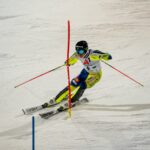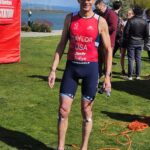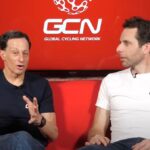 Skiracing.com recently published an article about a segment of RedBull TV that explores whether great performers are born or made. The 50-minute show, titled The Prodigies, focuses on Mikaela Shiffrin, the Olympic ski racing champion, and Lang Lang, considered the finest classical pianist in the world.
Skiracing.com recently published an article about a segment of RedBull TV that explores whether great performers are born or made. The 50-minute show, titled The Prodigies, focuses on Mikaela Shiffrin, the Olympic ski racing champion, and Lang Lang, considered the finest classical pianist in the world.
In my view, the segment is biased toward the ‘great performers are made’ side of the argument. Most of the experts who were interviewed were clearly in the “made” camp. The focus of the show was on the passion, commitment, and hard work, not to mention the considerable involvement of parents, in leading Mikaela and Lang Lang to the top of their fields. It didn’t really explore the role of innate talent or physiological advantage in performance greatness, primarily, I think, because innate ability can’t be easily shown (they didn’t interview any experts on innate talent or physiology). This emphasis misses the seemingly obvious point that, though the best performers in every setting practice inordinate amounts of time, so do many others who aspire to greatness, but never reach great heights because they lacked the innate abilities or requirements to reach the very top (I put myself solidly into that group).
The “born or made” argument is best exemplified by two well-known books, Outliers by Malcolm Gladwell and The Sports Gene by David Epstein (for those who would rather watch a video rather than read these books, you can see these videos: Epstein and Gladwell). You can decide for yourself.
I believe that this notion that great performers can be made enables people (especially parents) to feel that children are born onto a level playing field where everyone starts out equal and anyone has the opportunity to be the best. It also allows people to believe that anyone can be great if only they commit the time and energy to their craft. This perception, in my view, is simply unsupported by science and not accurate. Here and here are two great articles that further debunk the “made perspective.
There is no doubt in my mind that athletes are born AND made. The reality is that different sports (and other performance settings, e.g., music, dance) have specific neurological, physiological, and musculoskeletal requirements and if you’re not born with those, all the training in the world won’t help (though a performer without the innate gifts can still get pretty darned far on great effort).
At the same time, innate ability will also only get athletes so far because whatever inborn talent that they have must be developed. We have seen gifted failures, “can’t miss” kids who missed, and phenoms who didn’t turn out to be phenomenal.
From this perspective, “good” genes and a lot of hours aren’t sufficient separately to become the best, but, collectively, are absolute necessities for true greatness. Particularly in this day and age, to be the very best, athletes must have been born with a talent-rich set of genes (and they should thank their parents for that!) AND must leverage every contributor to athletic performance including conditioning, nutrition, sleep, technique, tactics, equipment, and, of course, the mind.
Ultimately, we have no control over the genes we receive, so we shouldn’t focus on that which we have no control over. Also, we can’t know whether or not we received world-class genes from our parents until we maximize the genes we have and see how far we get. Rather, the goal of every young performer, if they have the passion and drive, should simply be to find out how good they can be.
Finally, becoming the very best, such as Mikaela Shiffrin and Lang Lang have, is no doubt a source of immense pride, meaning, and satisfaction (not to mention significant wealth and celebrity). At the same time, the not-so-simple act of fully realizing whatever ability we were born with can provide just as much pride, meaning, and satisfaction, without, admittedly, the accompanying riches and fame.





